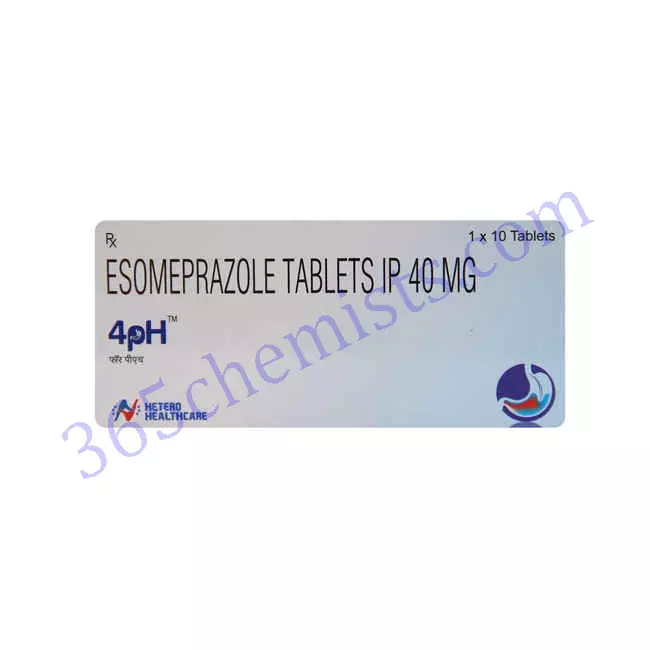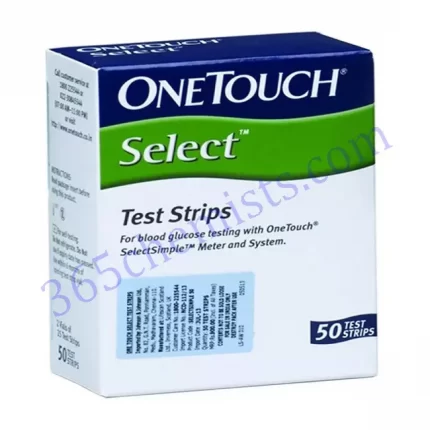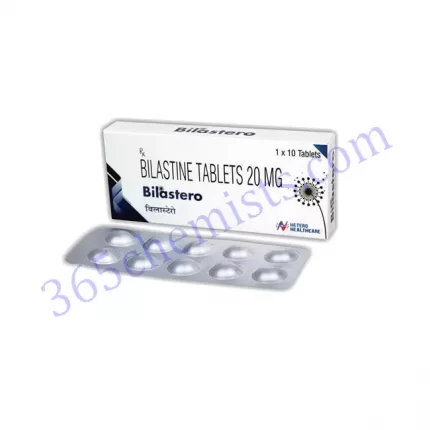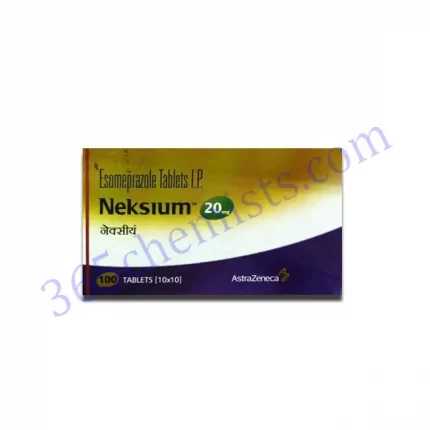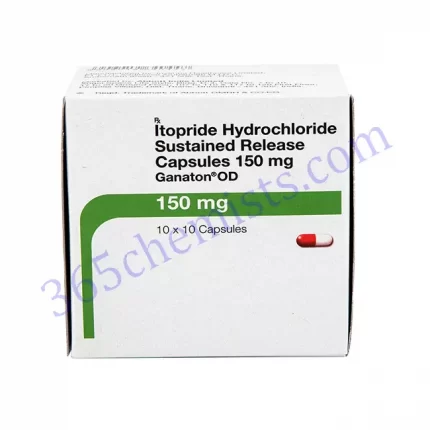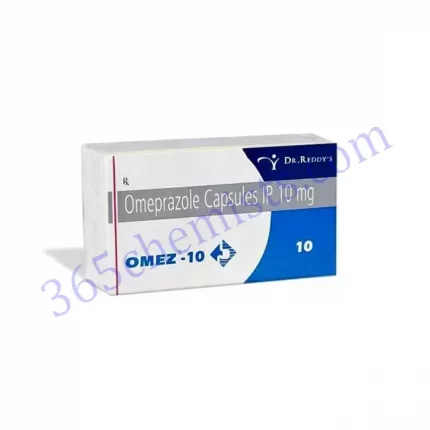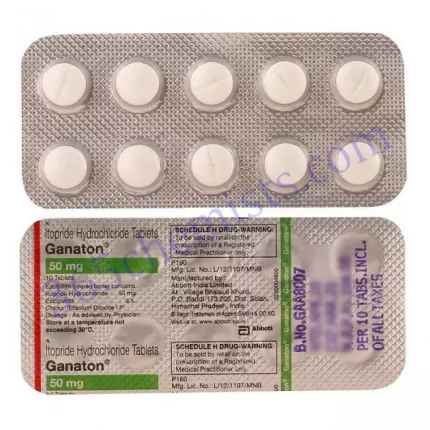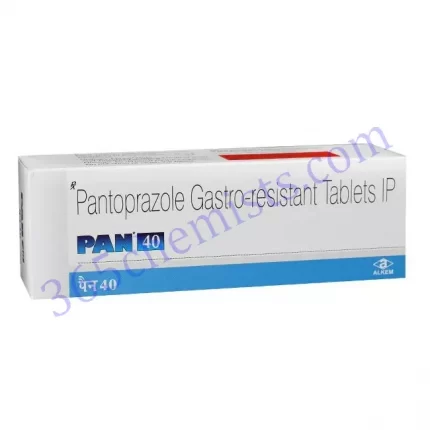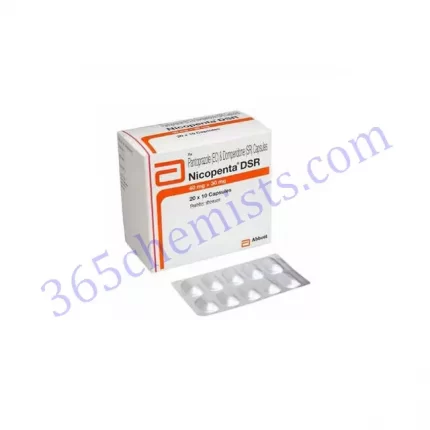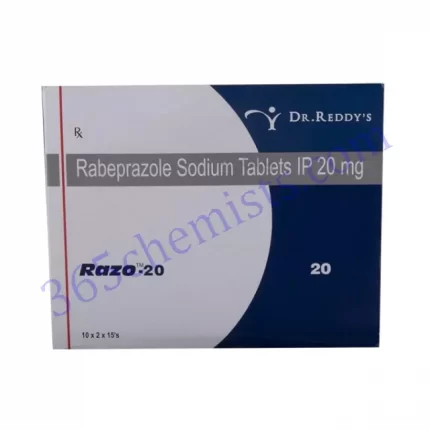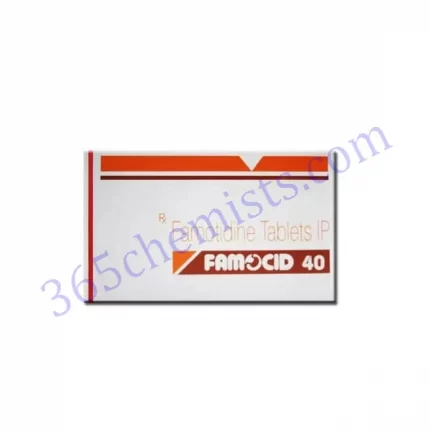Introduction to 4PH 40mg Tablet
Esomeprazole is the active ingredient in 4PH 40mg Tablet, which is a medication that is classified as a proton pump inhibitor (PPI) and is used to treat a variety of gastrointestinal conditions. Esomeprazole works by inhibiting the production of stomach acid, which in turn provides relief from symptoms such as acid reflux, stomach ulcers, and heartburn. It is an example of what is known as a proton pump inhibitor, which is a type of medication that is exceptionally useful in lowering the amount of acid that is secreted by the stomach.
Understanding Esomeprazole
The 4PH 40mg Tablet contains the active pharmaceutical ingredient esomeprazole. It accomplishes this by acting as a selective inhibitor of the enzyme known as the proton pump, which is responsible for acid production in the stomach. Esomeprazole works to alleviate symptoms associated with excess stomach acid by lowering the amount of acid that is secreted by the stomach. These symptoms include heartburn, indigestion, and gastroesophageal reflux disease (GERD).
Indications and Usage
It is common practise to prescribe the 4PH 40mg Tablet for the following indications:
- Heartburn, regurgitation, and difficulty swallowing are some of the symptoms of gastroesophageal reflux disease (GERD), which can be alleviated by taking this medication.
- Gastric Ulcers: It is recommended for the treatment of gastric ulcers, which are open sores that develop on the lining of the stomach, as well as for the prevention of gastric ulcers.
- It is also effective in treating and preventing duodenal ulcers, which are ulcers that occur in the first part of the small intestine. Duodenal ulcers are ulcers that occur in the first part of the small intestine.
- In cases of Zollinger-Ellison Syndrome, a condition that is characterised by excessive gastric acid secretion, esomeprazole is used to manage symptoms and reduce acid production. Zollinger-Ellison Syndrome is a condition that is characterised by excessive gastric acid secretion.
Dosage and Administration
It is possible for the dosage of a 4PH 40mg Tablet to change depending on the particular condition being treated as well as the patient receiving the medication. It is imperative that you carry out the directions that have been given to you by your healthcare professional. Here are some general dosage guidelines:
- GERD: The typical and recommended dosage for GERD is one 40 mg tablet to be taken once per day for a period of four to eight weeks. It is possible that the length of treatment will change depending on the severity of the symptoms and how well they respond to therapy.
- Gastric Ulcers: The dose that is recommended for the healing of gastric ulcers is one 40 mg tablet taken once daily for a period of four weeks to eight weeks. In certain instances, a maintenance dose may be recommended for the purpose of preventing the occurrence of ulcers in the future.
- Duodenal Ulcers: The typical and recommended dosage for the treatment of duodenal ulcers is one 40 mg tablet taken once daily for a period of two weeks to four weeks. For long-term management, a dose that is considered a maintenance dose may be prescribed.
- Syndrome of Zollinger-Ellison: The recommended dosage for treating Zollinger-Ellison syndrome can change depending on the requirements of the patient. Your acid output will be measured, and your response to treatment will be taken into consideration when determining the appropriate dosage by your healthcare provider.
Possible Side Effects and Precautions
Although the 4PH 40mg Tablet is generally well tolerated, it has the potential to bring on a variety of adverse effects in some people. Headaches, nausea, diarrhoea, abdominal pain, and flatulence are some of the more common adverse effects that may occur. These adverse effects are typically mild and fleeting in nature.
When taking a 4PH 40mg Tablet, it is essential to be aware of and observe all of the following safety precautions:
- Notify your healthcare provider if you are aware that you have an allergy to any medication, including esomeprazole, in addition to any other medications.
- Before beginning treatment with 4PH 40mg Tablet, you should speak with your healthcare provider if you have a history of liver disease, osteoporosis, or magnesium levels that are too low.
- Drug Interactions: If you are currently taking multiple medications, including prescription drugs, over-the-counter medications, and herbal supplements, it is important to inform your healthcare provider about all of these medications. There is a possibility that Esomeprazole could interact with other medications, which could reduce its efficacy or raise the risk of adverse effects.
- Long-Term Use: There is some evidence that suggests that prolonged use of proton pump inhibitors such as esomeprazole, particularly at high doses, may increase the risk of certain complications. These complications include bone fractures, a lack of vitamin B12, and gastrointestinal infections. For safe and effective long-term use, regular monitoring and communication with your healthcare provider are essential components.
Conclusion:
Esomeprazole, which is contained in the 4PH 40mg Tablet, is an effective medication that is used to treat gastrointestinal conditions such as gastroesophageal reflux disease (GERD), gastric ulcers, and duodenal ulcers. It achieves these effects by inhibiting the production of acid in the stomach, thereby relieving symptoms and facilitating recovery. Use of the 4PH 40mg Tablet in a manner that is both safe and effective can be attained by carefully adhering to the recommended dosage and directions, as well as by discussing any concerns with your healthcare provider. Even though the adverse effects are typically not severe, it is essential to be aware of any precautions that need to be taken as well as any possible drug interactions. Maintaining open lines of communication with your healthcare provider and performing routine monitoring are both necessary components of an effective management strategy for your gastrointestinal health.

